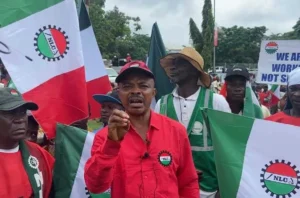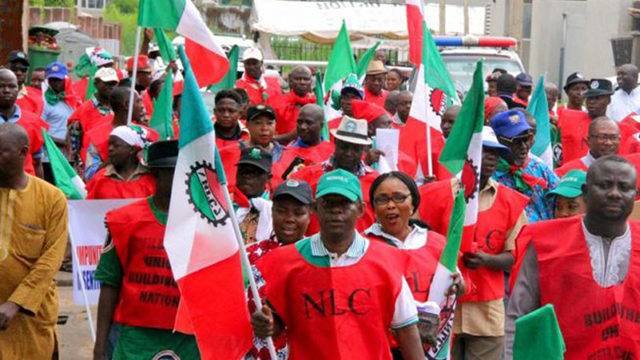Nigeria’s labor unions have declared an indefinite nationwide strike starting from Monday, June 3, 2024, over the government’s refusal to raise the proposed minimum wage from N60,000 and reverse the hike in electricity tariff to N65/kWh.

The strike, which is expected to be the largest in recent years, aims to pressure the government into addressing the demands of the workers and the general public.
The decision to go on strike was taken after the government failed to conclude and pass into law a new National Minimum Wage Act, despite repeated ultimatums from the labor unions.
The unions have been demanding a new minimum wage that reflects the current economic realities and ensures that workers can live decently. The government’s offer of N60,000, which is a 100 per cent increase in the existing national minimum wage, has been rejected by the unions as inadequate.
The strike is also a response to the hike in electricity tariff, which has further impoverished the already suffering people. The unions have called for the reversal of the tariff hike and the stoppage of the apartheid categorisation of consumers into bands.
The government’s failure to address these demands has led to widespread protests and demonstrations across the country, with many calling for the government to take immediate action to address the welfare of the people.
The strike is expected to have significant impacts on various sectors of the economy, including the power, oil, and gas sectors. Key unions in these sectors have vowed to join the strike, which may lead to fuel scarcity and nationwide blackout.
The strike is also expected to affect the aviation sector, with airport workers awaiting a strike action communication from their mother union, the Trade Union Congress.
The government has pleaded with the labor unions to reconsider their decision to go on strike, citing the need to find common ground and avoid further disruptions to the economy.
The Minister of Information and National Orientation, Idris Mohammed, has appealed to the unions to show understanding and not embark on the strike, stating that it is not the solution to the ongoing negotiation for a new minimum wage.
However, the labor unions have remained resolute in their demands, stating that the government’s refusal to address their concerns has left them with no choice but to take decisive action.
The unions have called on all their affiliates and state councils, civil society organizations, market men and women, and the general populace to prepare for decisive action and support the strike.
The nationwide strike by Nigeria’s labor unions is a significant development that highlights the ongoing struggle for better working conditions and a fairer society. The strike is a testament to the resilience and determination of the workers and the general public in the face of economic hardship and government inaction.
As the strike unfolds, it is crucial that the government and the labor unions engage in meaningful dialogue to find a lasting solution to the ongoing crisis and ensure that the welfare of the people is prioritized.




